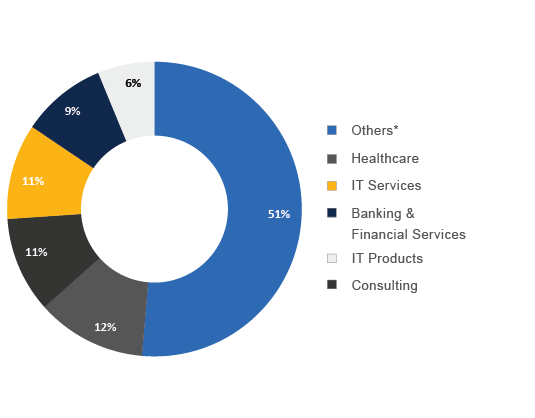Exploring Careers in Data Science One Byte at a Time

Careers in data science have been generating quite the buzz lately and it’s not unfounded. Data science has evolved from being only analytics and statistics to decisions, predictions, and actions that move the world. Kira Radinsky of Diagnostic Robotics Chairwoman & CTO, shared, “My true passion is arming humanity with scientific capabilities to automatically anticipate, and ultimately affect future outcomes based on lessons from the past.” In fact, Diagnostic Robotics today actively demonstrates the future of AI in healthcare while working with governments post-Covid. Data scientists are no longer restricted to only information technology industries. From retail to finance, supply chain to entertainment and transport to government, data scientists use data and continue to tackle real-world problems.
What is data science?
Put quite simply, data science is using and preparing data for analysis. While data is available in plenty, cleaning and using the data to make better decisions for the future is the core of data science. Data scientists can then review the results to uncover patterns and enable business leaders to draw informed insights. Make sure to read this related post for a more detailed answer on what is data science?
The data science domain is booming

Among the top 20 skills in demand in today’s workforce, artificial intelligence (AI) and machine learning are in high demand, ranking at #2. There is a growing need for data scientists and analysts globally to help navigate a disruptive marketplace, governed by big data. The C-Suite at enterprises turns to data scientists to connect the dots across terabytes of data to offer trends, predictions, and insights to drive competitive advantage.
Data drives business decision-making today. During the pandemic, most operations moved to digital platforms across businesses, this gave stimulus to e-commerce and volumes of data. Small and large businesses need to process all this data, find efficient data collection strategies, organize and analyze data to plan future contingencies. In 2021 alone, Glassdoor shows close to 37,000 data science jobs available, including machine learning engineers, data analysts, business analysts, and financial analysts’ jobs up for grabs. While the job growth and demand for data scientists are high, companies are looking for skilled talent. Data scientists with excellent expertise in programming languages and advanced technical skills are more likely to get recruited at higher-paying positions with lucrative projects.
Data scientist in a nutshell – are you one?

Understanding the skill sets and personalities required for careers in data science becomes important. This begs the question then, “Who is a data scientist?” Josh Wills, ex-director of data engineering, Slack, ex-statistician has put it succinctly on Twitter. “Data Scientist (n.): Person who is better at statistics than any software engineer and better at software engineering than any statistician.”
Thus, a successful data science career would require you to be a jack of all trades – programmer, analyst, engineer, mathematician, statistician, and strategist. But above all, a data scientist needs to love data. Their curious mind revolves around information; they formulate patterns, identify trends, analyze data, and solve business challenges. Doing all this while being completely undaunted by volumes of big data – almost 80 percent of a data scientists’ time is spent simply discovering and preparing data. It is then apt that a career in data science requires a master’s degree in computer science, engineering or mathematics, and statistics.
 Additionally, data science is constantly evolving. Unlike other standard professions, careers in data science offer you more than one type of job role and job title. Continuous learning and upskilling of technical skills in various programming languages, platforms, and technologies are essential to advance your data science career. The good news is that these advanced skills are easily accessible at Emeritus through their data science programs offered by leading global schools and universities.
Additionally, data science is constantly evolving. Unlike other standard professions, careers in data science offer you more than one type of job role and job title. Continuous learning and upskilling of technical skills in various programming languages, platforms, and technologies are essential to advance your data science career. The good news is that these advanced skills are easily accessible at Emeritus through their data science programs offered by leading global schools and universities.
Related Post: How to Become a Data Scientist
Technical skills required for a data scientist
Learning new technologies, approaches and the latest platforms of big data analysis enables data science professionals to stay relevant in the real world, equipping them with practical knowledge and hands-on training.
- Programming Languages: R Programming, SQL (Structured Query Language), Python, Java, C, and C++
- Platforms: Hadoop, Apache Spark
- Data Visualization: Matplotlib, Tableau
- Machine Learning and AI: understanding neural networks, reinforcement learning, Natural Language Processing (NLP) technologies, recommendation engines
Non-technical skills required for a data scientist
- Analytical skills to analyze data identify trends and real-world business and industry challenges
- Data scientists’ seldom work in silos, they need to be team players
- Collaborating on multiple projects, data sets, and departments across the organization is a common feature
- From C-suite to investors and sales teams, data science professionals need to translate incomprehensible data into relevant actionable strategies. So good communication skills and storytelling is a crucial skill
Explore these careers in data science
1. Data Architect and Administrators
Visualizers of the data management framework for the entire organization, data architects work closely with data engineers. They primarily work on understanding enterprise strategy and data that needs to be collected. They then create new database systems or enhance the performance of existing systems. Additionally, data architects design the flows and processes for data management and data engineers build the infrastructure. The U.S. Bureau of Labor Statistics projects up to 180,000 jobs for database administrators and architects by the year 2030. Those considering a data science career should seriously look at data architect and administrator jobs.
Average Base Salary: US$121,606 per year
2. Data Engineer
Data engineers are experts at accessing, and moreover, processing vast amounts of real-time data. Vital to technology-driven companies and tech departments, they interpret unformatted and unverified data. Thus, daily tasks include maintenance of high data volumes as well as creating data pipelines to make data accessible for further analysis with the data teams. Data engineers set up the infrastructure using programming languages (Python) and advanced SQL, NoSQL.
Average Base Salary: US$92,245
3. Data Analyst
Most data scientists start as data analysts and data engineers at the beginning of their careers. Data analysts work directly with raw data collected through the systems. This also means they work with various teams like marketing, sales, customer support, finance to process information. Data analysts don’t just chase the big business question to ask, they clean the data, study, and create reports using data visualization tools like Tableau and Excel to help teams develop strategies.
Average Base Salary: US $62,970 per year
4. Data Scientist
Data Scientists go beyond analyzing big data to address real-world business problems. The C-Suite relies on data scientists to provide trends, patterns across data and offer actionable insights and strategies that can affect the bottom line. Their insights have a direct impact on strategic business decisions. Excellent communicator, business strategist, and even better analyst and statistician are the qualities expected from a data scientist.
Average Base Salary: US$97,350 per year
5. Machine Learning Engineer
A Machine Learning Engineer is a unique combination of software engineering and data science that works with big data daily. In a large consumer-facing setup both roles work together but may have independent responsibilities. Data scientists are expected to be machine learning experts with advanced software programming skills. ML Engineers develop software, ML models, and artificial intelligence (AI) systems to drive various processes for the organization. Advancing to an ML engineer requires years of experience and expertise, so typically they are employed in senior roles.
Average Base Salary: US$112,790 per year
6. Statisticians and Mathematicians
Prominently working in the government, healthcare, and research and development organizations, statisticians identify trends that advise decision-making and policies in organizations. Mathematicians and statisticians interpret large volumes of numerical data and design research surveys, develop mathematical models to collect data as well as report findings.
Average Base Salary: US $93,290 per year
7. Business IT Analyst
Strategists at heart and analysts by mind, a business analyst evaluates a company’s processes and analyses industry trends and markets. Business analysts process enormous amounts of data and scout opportunities to improve business revenue and growth. Common job titles held are business intelligence (BI) developers and business consultants. Processing this data requires a BI developer to have advanced skills in BI analytic tools and programming skills.
Average Base Salary: US$70,759 per year
8. Marketing Analyst
Identifying shifting consumer behaviors and examining new buying trends as well as analyzing the digital universe for a business is all the excellence of a market analyst. With most businesses selling digitally, marketing analysts access large amounts of data across various platforms and devices to create strong go-to-market strategies and evaluate marketing campaigns.
Average Base Salary: US$58,211 per year
9. Clinical Data Managers
Clinical data managers unite healthcare training with mathematics, programming, computer science, and statistics. Similar to the other fields, data collection to data governance and data integrity across clinical trials and research, clinical data managers actively assimilate, analyze and predict medical industry trends.
Average Base Salary: US $75,562 per year.
Data science is a thriving career option and opens plenty of job roles for those choosing science careers. Therefore, senior professionals with a bachelor’s or master’s degree in computer engineering can easily consider building their careers in data science, by upskilling and reskilling through online data science programs.
There are a lot of factors that will influence a data scientist’s salary, including location, experience, and the type of company. The more experience and knowledge that an employee has, the more value they will bring to any organization.
You can also learn to extract actionable insights from complex data to inform your business decisions by taking an online course in data science with Emeritus.
By Janice Godinho





